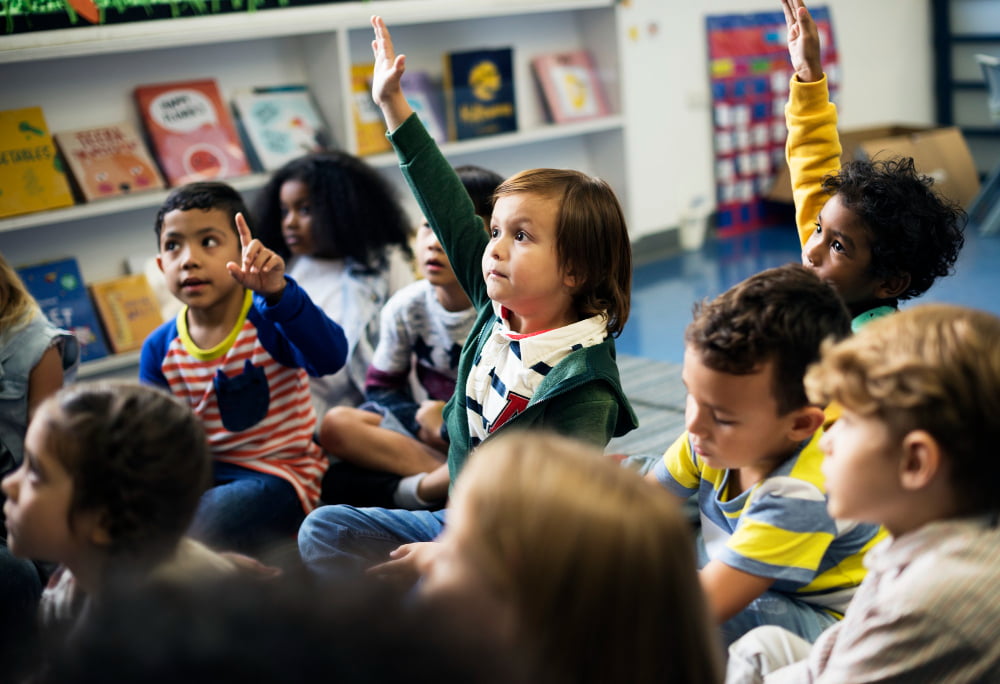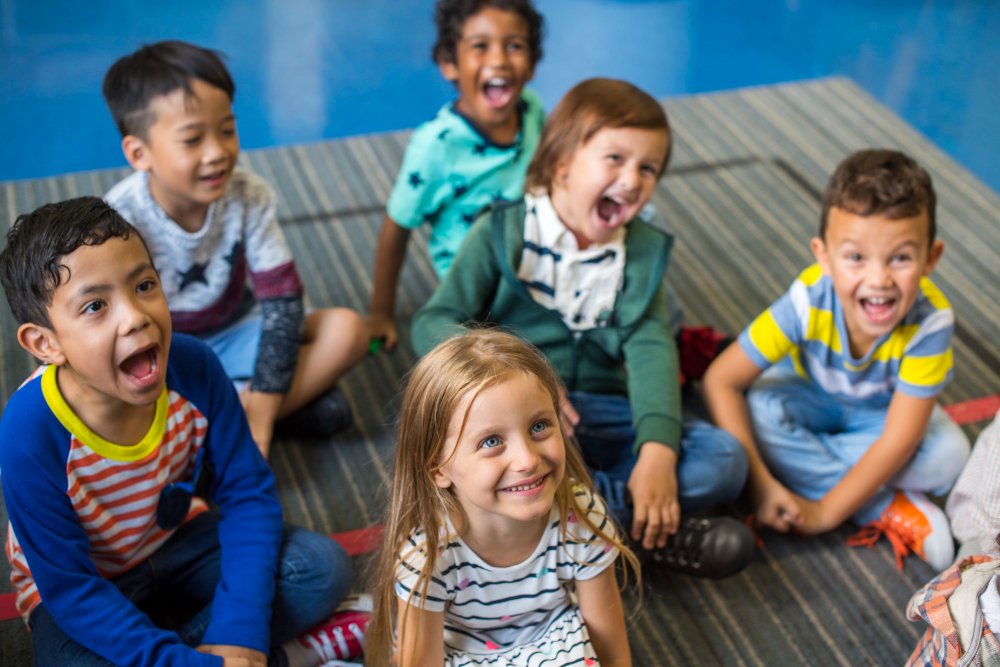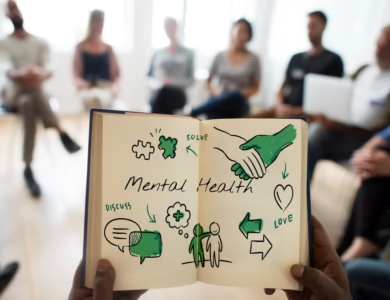10 Creative and Exciting Daycare Program Ideas for Fun and Learning

Are you struggling to keep your daycare children engaged and entertained? Do you find yourself running out of fresh, stimulating activities that balance fun with learning? The challenge of creating an exciting daycare environment can be overwhelming. But fear not! We’ve compiled a list of 10 creative and exciting daycare program ideas that will transform your center into a hub of fun and learning, solving your activity dilemmas and delighting both children and parents alike.
Innovative Daycare Activities That Engage and Educate Young Minds
Running a successful daycare center requires a mix of creativity, education, and entertainment. The right activities can make all the difference in fostering a love for learning and creating lasting memories. Our curated list of daycare activities and preschool program ideas goes beyond the ordinary, offering a blend of early childhood education activities that spark curiosity and joy.
These fun daycare ideas are designed to challenge young minds while keeping them thoroughly entertained. From hands-on experiments to artistic explorations, our educational daycare programs cover a wide range of interests and developmental stages. Get ready to explore creative learning activities for kids that will have them eager to participate and learn every day.
1. Interactive Storytelling Sessions
Interactive storytelling for kids transforms traditional storytime into an immersive adventure. By engaging children in the narrative process, these sessions become more than just passive listening experiences. Props, puppets, and expressive reading techniques breathe life into tales, making them leap off the pages and into the minds of young listeners. As children become active participants in the story, they develop crucial language skills and boost their confidence in communication.
These engaging story sessions are a cornerstone of effective daycare program ideas. They offer a unique blend of entertainment and education, perfect for capturing the attention of even the most restless toddlers. Creative storytelling for children encourages them to think critically, predict outcomes, and express their thoughts and feelings about the characters and plot. By asking questions and inviting children to act out parts of the story, educators create a dynamic learning environment that fosters creativity and social interaction.
Daycare storytelling activities go beyond simply reading aloud. They create a shared experience that builds community within the group and helps children develop empathy as they explore different perspectives through the characters’ adventures. These fun story sessions can be tailored to various themes, seasons, or learning objectives, making them versatile tools in any daycare curriculum. Educational storytime becomes a gateway to exploring new concepts, from basic numeracy to complex emotions, all while nurturing a lifelong love for reading.
The impact of interactive storytelling in daycare settings is profound and far-reaching. It lays the foundation for strong literacy skills, enhances vocabulary, and improves listening comprehension. Moreover, these sessions help children develop their imagination, critical thinking abilities, and social-emotional intelligence – all crucial skills for future academic success and personal growth.
2. Science Experiments for Young Minds
Science experiments for kids open up a world of wonder and discovery, transforming ordinary daycare spaces into exciting laboratories. These hands-on activities capture the natural curiosity of young minds, encouraging them to ask questions, make predictions, and observe results. From the fizzy eruption of a baking soda volcano to the mysterious behavior of objects in the water, each experiment offers a tangible way for children to engage with scientific concepts.
Integrating fun science activities into daycare program ideas provides a rich learning environment that goes beyond traditional play. These educational experiments for children serve as powerful tools for cognitive development, fostering critical thinking skills and problem-solving abilities. By participating in daycare science experiments, kids learn to follow instructions, make observations, and draw conclusions – all while having a blast!
Hands-on science for kids is not just about entertainment; it’s about laying the foundation for future scientific thinking. These activities help children develop a scientific mindset, teaching them to approach problems methodically and think creatively about solutions. Daycare learning activities centered around science also promote language development as children learn new vocabulary and practice describing their observations and experiences.
The beauty of these experiments lies in their simplicity and safety, making them perfect for young learners. With everyday materials and proper supervision, educators can create memorable learning experiences that spark a lifelong interest in science. By introducing these engaging activities early on, we’re not just teaching science – we’re nurturing the next generation of innovators, problem solvers, and critical thinkers.
3. Creative Arts and Crafts Projects
Arts and crafts for kids are a cornerstone of early childhood development, offering a vibrant world of creativity and self-expression. These hands-on activities provide children with the opportunity to explore different textures, colors, and materials while developing crucial fine motor skills. From finger painting to sculpting with playdough, each project becomes a journey of discovery and personal achievement for young artists.
Integrating creative projects for children into daycare program ideas enriches the learning environment and supports holistic development. Daycare crafts activities can be tailored to complement other educational themes, reinforcing concepts through artistic expression. For instance, a lesson on seasons might include creating autumn leaf collages or winter snowflakes, making learning more engaging and memorable.
Fun art projects for kids go beyond mere entertainment; they serve as powerful tools for cognitive and emotional growth. Educational crafts for daycare settings can help children learn about shapes, colors, and patterns while also fostering problem-solving skills as they figure out how to bring their ideas to life. Moreover, these activities boost self-esteem as children take pride in their creations and share them with peers and family.
Arts and crafts sessions also provide valuable opportunities for social interaction and collaboration. Group projects encourage teamwork, sharing, and communication skills, all essential for a child’s social development. By offering a diverse range of creative activities, from painting and drawing to crafting with recycled materials, daycare centers can cater to different interests and abilities, ensuring that every child finds a medium through which they can express themselves confidently and joyfully.
4. Outdoor Adventure and Nature Exploration
Outdoor activities for kids offer a refreshing break from indoor routines, allowing children to connect with nature and engage all their senses. These adventures provide a dynamic learning environment where curiosity flourishes and physical activity comes naturally. Nature exploration for children transforms the world into a living classroom, where every leaf, stone, and creature becomes a subject of fascination and discovery.
Integrating daycare outdoor adventures into daycare program ideas creates opportunities for holistic development. Fun outdoor programs can include simple nature walks, exciting bug hunts, or hands-on gardening projects. These activities not only promote physical health but also stimulate cognitive growth as children observe, question, and learn about their environment. By providing tools like magnifying glasses and age-appropriate guidebooks, educators can enhance these experiences, encouraging children to look closer and learn more.
Educational nature activities offer countless benefits for young minds. They foster an early appreciation for the environment, laying the groundwork for future eco-conscious behaviors. Daycare nature walks can introduce basic concepts of biology, ecology, and conservation in an engaging, hands-on manner. Children learn to identify plants and animals, understand weather patterns, and observe seasonal changes, all while developing their observation and critical thinking skills.
Moreover, outdoor exploration promotes social skills as children work together to explore and share their discoveries. It also provides a natural setting for sensory play, allowing children to experience different textures, sounds, and smells. This multi-sensory engagement is crucial for brain development and can be especially beneficial for children with diverse learning needs. By regularly including these outdoor adventures in their curriculum, daycares can create well-rounded, nature-connected, and physically active young learners.
5. Music and Movement Classes
Music classes for kids are a vibrant and essential component of early childhood education. They offer a joyful way to develop a wide range of skills, from physical coordination to cognitive processing and emotional expression. By engaging children in rhythmic activities and melodic experiences, these classes lay the foundation for a lifelong appreciation of music while supporting overall development.
When integrated into daycare program ideas, movement activities for children become powerful tools for learning and growth. Daycare music sessions can be tailored to various age groups and developmental stages, ensuring that each child benefits from the experience. Fun music and movement activities, such as rhythm clapping games, musical chairs, and dance parties, not only entertain but also educate. These engaging sessions help children develop their sense of rhythm, improve their listening skills, and enhance their ability to follow instructions.
Educational dance for kids goes beyond simple entertainment, offering a multifaceted approach to learning. Through dance, children improve their gross motor skills, spatial awareness, and balance. Daycare rhythm activities help children internalize patterns and sequences, which are fundamental to mathematical thinking. Moreover, these classes provide an outlet for emotional expression, allowing children to convey feelings through movement and sound, which is particularly beneficial for those who may struggle with verbal communication.
The benefits of music and movement extend far beyond the classroom. These activities foster social skills as children learn to work together in group dances or musical performances. They also boost self-confidence as kids master new skills and showcase their talents. By making music and movement a regular part of the daycare routine, educators create a dynamic, engaging environment that nurtures well-rounded, expressive, and physically adept young learners.

6. Cooking and Baking Fun
Cooking activities for kids offer a rich, multi-sensory learning experience that goes far beyond the simple joy of creating tasty treats. These hands-on sessions provide children with practical life skills while simultaneously teaching them about nutrition, science, math, and teamwork. By engaging in baking with children, daycare centers can create an environment where learning feels like play and every dish becomes an achievement.
When integrated into daycare program ideas, cooking and baking sessions become powerful educational tools. Daycare cooking classes can be tailored to various age groups, ensuring that each child participates in age-appropriate tasks. Fun cooking projects like assembling colorful fruit salads, decorating cookies, or crafting simple sandwiches allow children to explore different textures, colors, and flavors while learning about healthy food choices. These educational kitchen activities also introduce basic concepts of measurement, sequencing, and following instructions – all crucial skills for academic success.
Daycare baking sessions offer unique opportunities for sensory exploration and fine motor skill development. As children mix ingredients, knead dough, or sprinkle toppings, they’re enhancing their hand-eye coordination and developing patience. Moreover, these activities foster language development as children learn new vocabulary related to ingredients, cooking processes, and kitchen tools. The collaborative nature of cooking also promotes social skills, teaching children to work together, share tasks, and celebrate shared accomplishments.
The benefits of cooking activities extend beyond the kitchen. They build confidence as children see their efforts transformed into delicious results. These sessions also provide a natural setting for discussing cultural diversity through exploring different cuisines. By making cooking and baking a regular part of the daycare routine, educators create engaging, practical learning experiences that children eagerly anticipate, setting the stage for lifelong healthy eating habits and a positive relationship with food.
7. Dramatic Play and Dress-Up
Dramatic play for kids is a powerful tool for cognitive, social, and emotional development. Through role-playing and imaginative scenarios, children explore different perspectives, experiment with social norms, and practice real-life situations in a safe, controlled environment. This form of play allows them to step into various roles, from everyday heroes like doctors and firefighters to fantastical characters, fostering creativity and self-expression.
When integrated into daycare program ideas, dress-up activities for children become more than just fun pastimes; they transform into rich learning experiences. Daycare role-playing sessions can be structured around various themes, allowing educators to introduce new concepts and reinforce existing knowledge. Fun dramatic sessions might involve setting up a pretend grocery store to teach basic math skills, or creating a make-believe post office to encourage writing and communication.
Educational pretend play offers numerous advantages for child development. It enhances language skills as children engage in dialogue, negotiate roles, and describe their imaginary worlds. Daycare costume activities also promote empathy and social understanding as kids step into different characters’ shoes, learning to see situations from multiple perspectives. Moreover, these activities foster problem-solving skills as children work together to create storylines and resolve conflicts within their imaginary scenarios.
By providing a variety of costumes, props, and themed play areas, daycare centers can create an immersive environment that sparks imagination and encourages active participation. This type of play not only entertains but also prepares children for future social interactions and academic challenges. As they take on different roles, from chefs in a bustling kitchen to astronauts exploring space, children develop confidence, creativity, and a deeper understanding of the world around them.
8. Puzzles and Brain Games
Puzzles for kids are more than just entertaining pastimes; they’re powerful tools for cognitive development. These engaging activities challenge young minds, encouraging critical thinking, problem-solving, and spatial awareness. From simple jigsaw puzzles to more complex brain teasers, each game offers a unique opportunity for children to flex their mental muscles while having fun.
When integrated into daycare program ideas, brain games for children become an essential part of the learning experience. Daycare puzzle activities can be tailored to different age groups and skill levels, ensuring that every child is appropriately challenged and motivated. Fun educational games like matching cards, pattern recognition tasks, and simple logic puzzles not only entertain but also stimulate cognitive growth in a structured yet enjoyable way.
Daycare brain teasers serve multiple purposes in a child’s development. They enhance concentration and focus, crucial skills for future academic success. These cognitive development activities also boost memory retention as children learn to recognize patterns and remember specific pieces or solutions. Moreover, puzzles and brain games foster a sense of achievement, building self-confidence as children successfully complete each challenge.
The versatility of these activities makes them invaluable in a daycare setting. They can be used as individual pursuits, promoting independence and self-directed learning, or as group activities that encourage cooperation and communication. By regularly incorporating puzzles and brain games into the daily routine, daycare providers create an environment that nurtures analytical thinking and problem-solving skills. This early exposure to cognitive challenges lays a strong foundation for future learning, equipping children with the mental agility and perseverance needed to tackle more complex academic tasks as they grow.
9. Multicultural Celebrations
Multicultural activities for kids open windows to the world, fostering understanding and appreciation for diverse cultures from an early age. These engaging experiences expose children to a rich tapestry of global traditions, music, food, and languages, laying the foundation for cultural sensitivity and global citizenship. By celebrating diversity, children learn to embrace differences and recognize the unique value each culture brings to our shared human experience.
When integrated into daycare program ideas, cultural celebrations for children become powerful tools for learning and social development. Daycare diversity programs can transform the learning environment into a microcosm of global society, where each child’s cultural background is valued and shared. Fun multicultural events, such as international food festivals or cultural dress-up days, create memorable experiences that make learning about different cultures exciting and tangible for young minds.
Educational cultural activities in daycare settings go beyond surface-level exposure. They provide opportunities for deep, meaningful engagement with various cultures. Children can participate in craft-making sessions inspired by different cultural art forms, learn traditional dances, or explore folktales from around the world. These hands-on experiences not only educate but also spark curiosity and encourage children to ask questions about the world around them.
Daycare global learning initiatives play a crucial role in shaping inclusive attitudes from an early age. By introducing simple phrases in different languages or exploring diverse culinary traditions, children develop an appreciation for linguistic and cultural diversity. These activities also boost cognitive skills as children compare and contrast different cultural practices, enhancing their critical thinking abilities. Ultimately, multicultural celebrations in daycare settings nurture empathy, respect, and a sense of global interconnectedness, preparing children to thrive in our increasingly diverse and globalized world.
10. Yoga and Mindfulness Sessions
Yoga for kids introduces young learners to the art of mindful movement and relaxation, fostering physical strength, flexibility, and emotional balance. These gentle practices offer children tools to navigate their emotions, improve concentration, and develop a positive self-image. By combining playful poses with breathing exercises, yoga creates a unique space where children can explore their bodies and minds in a supportive, non-competitive environment.
When integrated into daycare program ideas, mindfulness activities for children become powerful catalysts for emotional and social development. Daycare yoga sessions can be tailored to different age groups, using animal-inspired poses or storytelling to make the practice engaging and accessible. These fun relaxation activities provide a much-needed counterbalance to the often high-energy atmosphere of daycare settings, offering moments of calm and centered focus throughout the day.
Educational mindfulness exercises in daycare settings go beyond physical postures. They include breathing techniques, guided visualizations, and simple meditation practices that help children develop self-awareness and emotional regulation skills. These tools can be particularly valuable during transitions or challenging moments, empowering children to manage their stress and emotions effectively.
Daycare wellness programs that include yoga and mindfulness contribute to a holistic approach to child development. Regular practice can improve children’s body awareness, balance, and coordination. Moreover, these sessions foster a sense of community within the daycare group as children learn to respect their own space and that of others. By introducing these practices early, daycare providers equip children with lifelong skills for managing stress, enhancing focus, and maintaining overall well-being. As children carry these techniques into their daily lives, they develop resilience and a positive approach to challenges, setting a foundation for future mental and emotional health.
Further reading: 12 Surprisingly Effective Daycare Event Ideas (Parents Will Thank You!)
–For more inspiration and resources on creating engaging and educational activities for your daycare, explore these helpful online tools: Pinterest – Daycare Activity Ideas and Scholastic – Early Childhood Activity Bank.



